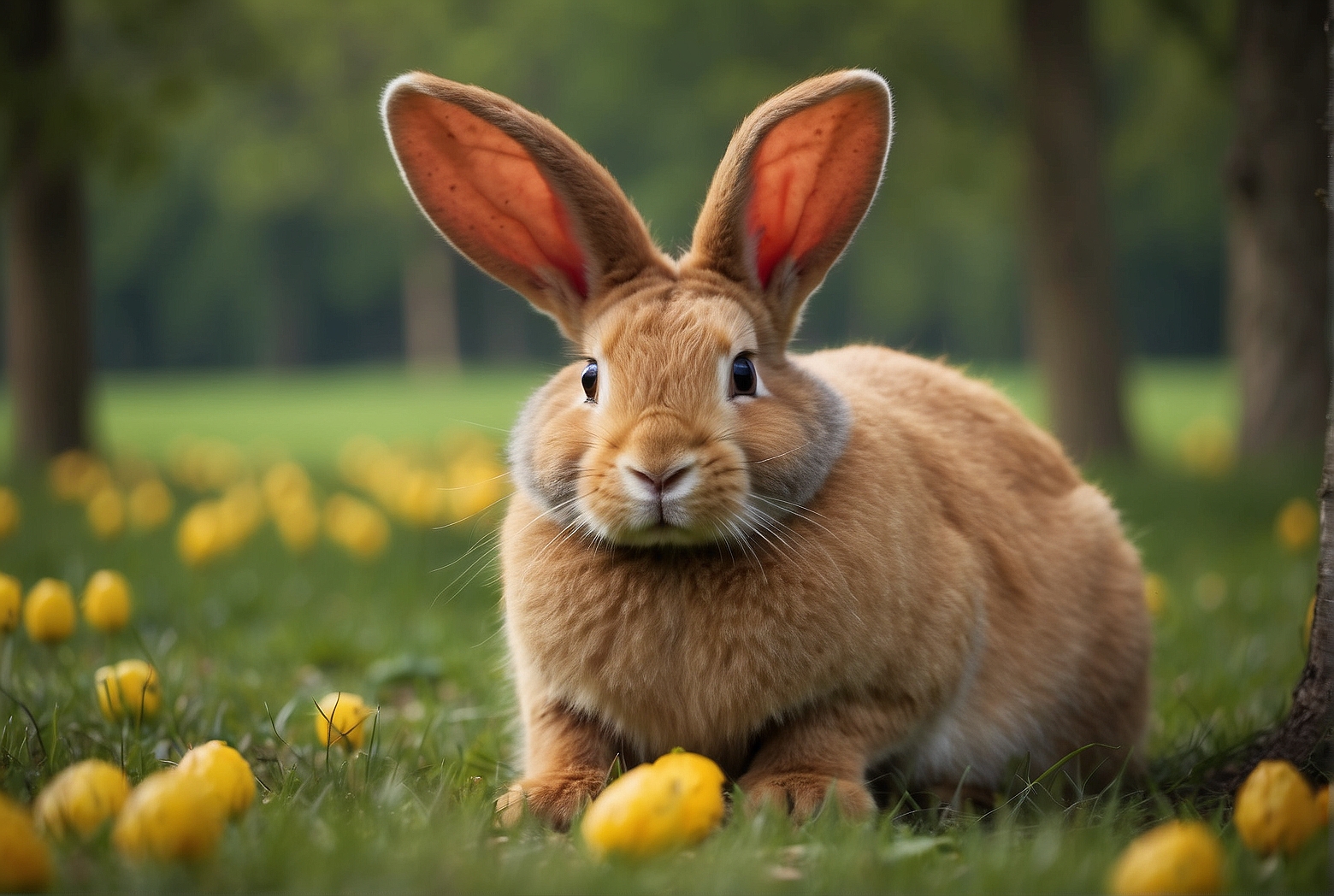Have you ever heard of Flemish Giant rabbits? These adorable creatures are known for their impressive size and gentle temperament. In this article, we will explore ten fascinating characteristics of Flemish Giant rabbits, from their remarkable size to their friendly and social nature. So, if you’re curious about these majestic bunnies, keep reading to learn more about them!
Size
Flemish Giant rabbits are known for their impressive size. In fact, they hold the title for being the largest breed of domestic rabbit. These gentle giants can weigh up to a whopping 22 pounds, making them much larger than your average rabbit. Not only that, but they can grow up to an impressive 2.5 feet in length. This substantial size sets them apart from other rabbit breeds and contributes to their distinctive appearance.
Appearance
One look at a Flemish Giant rabbit, and you’ll immediately notice their muscular and well-built body. They have a robust physique that showcases their strength and agility. Their thick and dense fur adds to their overall majestic appearance. This luxurious coat not only provides warmth but also requires regular grooming to keep it in optimal condition. Additionally, Flemish Giants have an elongated head with long ears that stand erect, adding to their regal charm.
Temperament
If there’s one word that perfectly captures the temperament of a Flemish Giant rabbit, it’s gentle. These rabbits have a docile nature that makes them fantastic pets for people of all ages. They are known to be affectionate creatures that bond well with their human companions. Whether it’s snuggling up for a cuddle or simply enjoying your presence, Flemish Giants have a reputation for being loving and dedicated pets. Furthermore, these rabbits are generally calm and easy to handle, making them a popular choice for families and individuals alike.
Lifespan
Proper care and attention can help ensure that your Flemish Giant rabbit lives a long and fulfilling life. On average, these rabbits can live up to 10 years or more. However, it’s important to note that multiple factors can influence their lifespan, including health and genetics. By providing your rabbit with a balanced diet, regular veterinary check-ups, and a safe and stimulating environment, you can help maximize their potential lifespan and enjoy many happy years together.
Intelligence
The Flemish Giant rabbit breed is widely recognized for its high level of intelligence. These rabbits are inquisitive creatures that thrive on mental stimulation. In fact, they are often considered one of the most intelligent rabbit breeds. Their cognitive abilities make them excellent candidates for learning tricks and commands. With patience, positive reinforcement, and some delicious treats as motivation, you’ll find that your Flemish Giant is a quick learner. They also enjoy problem-solving activities, which can keep them entertained and mentally engaged.
Social Behavior
Flemish Giant rabbits are highly adaptable when it comes to their social needs. They can be kept alone or in pairs/groups, depending on their individual preferences and compatibility with other rabbits. In general, they tend to be friendly towards other rabbits. However, it’s crucial to note that some dominant behaviors may occasionally arise within groups. When introducing new rabbits, it’s important to monitor their interactions and ensure they are compatible. Building a harmonious social environment for your Flemish Giant is key to their overall well-being.
Diet
Like all rabbits, Flemish Giants require a well-balanced diet to thrive. Their diet should consist of primarily hay, fresh vegetables, and quality rabbit pellets. Hay is an essential component as it provides the necessary fiber for proper digestion. Fresh vegetables such as leafy greens and root vegetables should also be included to provide essential vitamins and minerals. It’s important to avoid feeding high-calorie treats and sugary foods, as these can lead to weight gain and potential health issues. Always consult with a veterinarian for specific dietary recommendations tailored to your rabbit’s needs.
Grooming
As mentioned earlier, Flemish Giant rabbits have a thick and dense fur coat. Regular grooming is necessary to prevent matting and shedding. Brushing your rabbit’s fur on a regular basis helps remove loose hair, preventing it from getting tangled and causing discomfort. Additionally, trimming your rabbit’s nails is essential for their comfort and health. Overgrown nails can lead to pain, difficulty in movement, and potential injury. Ensuring your Flemish Giant is properly groomed not only keeps them looking their best but also ensures they are happy and healthy.
Trainability
Contrary to popular belief, rabbits can indeed be trained, and Flemish Giants are no exception. With patience and positive reinforcement, these intelligent rabbits can be taught to use a litter box. It’s important to provide a consistent and well-defined area for them to eliminate waste. Using treats and praise as rewards can help motivate them during the training process. Additionally, Flemish Giants enjoy learning new behaviors and tricks. By breaking down training into small, manageable steps, you can develop a strong bond with your rabbit and showcase their impressive abilities.
Health Issues
While Flemish Giants are generally healthy rabbits, they are prone to certain genetic health problems. Dental issues, including overgrown teeth and malocclusion, can be a common problem in this breed. It’s essential to provide them with appropriate chew toys and a diet rich in fiber to maintain good dental health. Obesity can also be a concern, so monitoring their diet and providing regular exercise is crucial. Regular vet check-ups are important to ensure any health issues are detected early and managed effectively. By proactively caring for their health, you can help your Flemish Giant rabbit lead a happy and healthy life.
